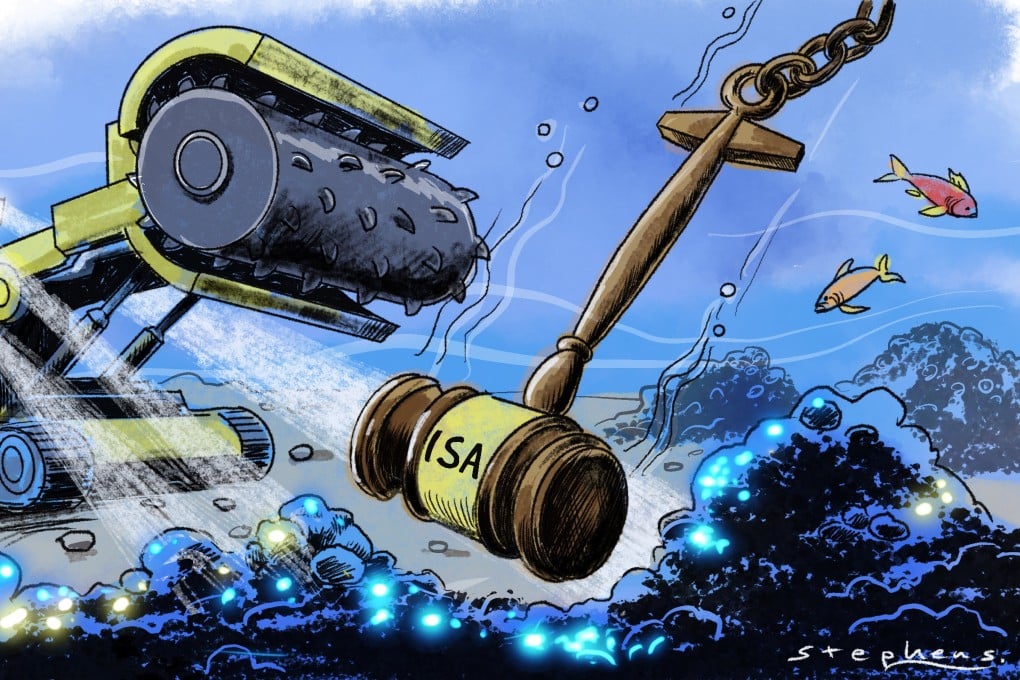Advertisement
Opinion | The world’s seabed authority needs reform that puts the planet first
- The election of a new chief brings hope of more consensus before governments embark on a deep-sea mining spree harmful to ecosystems
Reading Time:4 minutes
Why you can trust SCMP
1

Recent negotiations on commercial deep-sea mining failed to make progress on a code that would govern exploitation of minerals in international waters while safeguarding marine ecosystems that sustain life on earth. Delegates agreed to little that would address major disputes, from the scope of regulation to equitable distribution of mining revenue to environmental protections.
Advertisement
Meanwhile, the International Seabed Authority (ISA) – an intergovernmental body charged with regulating exploration and extraction in waters outside national jurisdictions under the United Nations Convention on the Law of the Sea (UNCLOS) – has been saddled with scandal and leadership challenges. But last week, delegates elected a new leader, the Brazilian oceanographer Letica Carvalho, who offers hope that the talks will be suspended until scientific evidence is available.
The talks have been going on since 2014 under the aegis of the ISA, which has 169 members, including China and the European Union but not the United States, which never ratified UNCLOS. The urgency to implement a code came in 2021 when the small Pacific island state of Nauru invoked an obscure legal provision to start mining through its sponsored company, a subsidiary of The Metals Companies (TMC), a Canadian firm.
After a country applies when there is no rule book in place, the ISA has two years to finalise comprehensive rules. If that effort fails, mining could theoretically start free of regulation. The deadline for Nauru expired on July 9, 2023 but some argue that this is not a hard deadline. Moreover, the ISA council has emphasised that commercial mining should not begin until regulations are adopted.
However, other agreements could bind countries to protect the seas. The landmark agreement reached in March last year on the sustainable use of marine biodiversity of areas beyond national jurisdiction aims to create protected areas, conduct environmental impact assessments, promote sharing of genetic resources and support countries with marine technology transfers.
Advertisement
The Nauru subsidiary of TMC said it will apply for a licence following the conclusion of recent ISA talks. Since 1994, the ISA has granted 31 contracts for exploration. China has five, the most contracts of any member. The ISA has not rejected an application, a source of mistrust for anyone concerned about conserving the world’s oceans.

Advertisement
